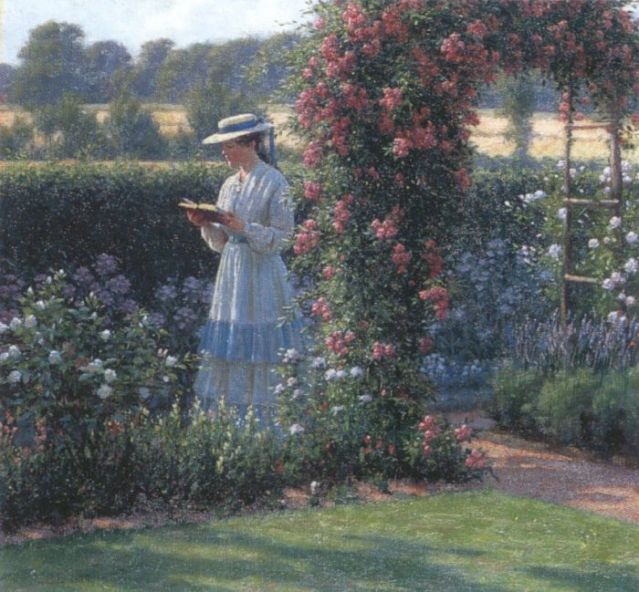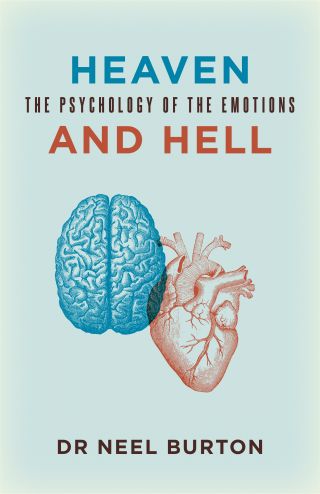Loneliness
The Perils and Privileges of Loneliness
The psychology and philosophy of aloneness, loneliness, and solitude.
Posted October 20, 2014

Loneliness might be defined as a complex and unpleasant emotional response to isolation or lack of companionship. It can be either transient or chronic, and typically includes anxiety about a lack of connectedness or communality.
The pain of loneliness is such that, throughout history, solitary confinement has been used as a form of torture and punishment. More than just painful, loneliness is also damaging. Lonely people eat and drink more, and exercise and sleep less. They are at higher risk of developing psychological problems such as alcoholism, depression, and psychosis, and physical problems such as infection, cancer, and cardiovascular disease.
Loneliness has been described as ‘social pain’. Just as physical pain has evolved to signal injury and prevent further injury, so loneliness may have evolved to signal social isolation and stimulate us to seek out social bonds. Human beings are profoundly social animals, and depend on their social group not only for sustenance and protection but also for identity and meaning. Historically and still today, to be alone is to be in mortal danger of losing oneself.
The infant is especially dependent upon others, and loneliness may evoke early fears of neglect and abandonment. In later life, loneliness can be precipitated by breakup, divorce, death, or the sudden loss or undermining of any important long-term relationship. Such a split entails not only the loss of a single meaningful person, but also, in many cases, of that person’s entire social circle. Loneliness can also result from disruptive life events such as moving schools, changing jobs, immigrating, getting married, or giving birth; from social problems such as racism or bullying; from psychological states such as shyness, agoraphobia, or depression; and from physical problems that restrict mobility or require special care.
Loneliness is a particular problem of industrial societies. One US study (McPherson M (2006), Social isolation in America: Changes in core discussion networks over two decades. American Sociological Review 71 (3), 353–75) found that, between 1985 and 2004, the proportion of people reporting having no one to confide in almost tripled. In 1985, respondents most frequently reported having three close confidants; by 2004, this number had fallen to nought close confidants. These stark findings may be explained by such factors as smaller household sizes, greater migration, higher media consumption, and longer life expectancy. Large conglomerations built on productivity and consumption at the expense of connection and contemplation can feel profoundly alienating. Aside from being intrinsically isolating, long commutes can undermine community cohesion and compromise time and opportunities for socializing. The internet has become the great comforter, and seems to offer it all: news, knowledge, music, entertainment, shopping, relationships, and even sex. But over time, it stokes envy and longing, confuses our needs and priorities, desensitizes us to violence and suffering, and, by creating a false sense of connectedness, entrenches superficial relationships at the cost of living ones.
Man has evolved over several millennia into one of the most social of all animals. Suddenly, he finds himself apart and alone, not on a mountaintop, in a desert, or on a raft at sea, but in a city of men, in reach but out of touch. Despite our dread of loneliness, our society is highly individualistic and materialistic, so much so that people are no longer called people but ‘individuals’, and no longer defined according to their social role, needs, or aspirations, but according to their economic function or consumer status. A doctor (from the Latin docere, ‘to teach’, ‘to make right’) is no longer a doctor but a ‘healthcare provider’, and his or her patients (from the Latin patere, ‘to suffer’) are no longer patients but ‘clients’, ‘consumers’, ‘service users’ or ‘end users’. Anyone with any involvement or interest in their relationship—sorry, ‘interaction’—is a ‘stakeholder’, including investors, creditors, commissioners, managers, administrators, suppliers, collaborators, contributors, commentators, and competitors. These types all train in leadership, communication, negotiation, and conflict handling skills, and organize time and activities for team building, group bonding, and networking. Yet they cannot find the opportunity or humanity to listen, think, or feel, or even to exercise elementary common sense. In March 2013, facing the Health Select Committee to defend his record over the death of patients admitted to Stafford Hospital in Staffordshire, England, the then Chief Executive of the National Health Service (NHS) confessed to Members of Parliament that “during that period, across the NHS as a whole, patients were not the centre of the way the system operated”. Instead of contracting yet more hungry management consultants, organizations ought to turn, at least once in a while, to a moral philosopher for perspective and direction.
Some people actively choose to isolate themselves from the rest of society, or, at least, not to actively seek out social interactions. Such ‘loners’ (the very term is pejorative, implying as it does abnormality and deviousness) may revel in their rich inner life or simply dislike or distrust the company of others. Of course, not all loners choose to be lonely, but many do. Timon of Athens, who lived at around the same time as Plato, began life in wealth, lavishing money upon his flattering friends, and, in accordance with his noble conception of friendship, never expecting anything in return. When he came down to his last drachma, all his friends deserted him, reducing him to the hard toil of labouring the fields. One day, as he tilled the earth, he uncovered a pot of gold, and his old friends all came piling back. But rather than take them in, he cursed them and drove them away with sticks and clods of earth. He publically declared his hatred of mankind and withdrew into the forest, where, much to his chagrin, people sought him out as some kind of holy man.
Did Timon feel lonely in the forest? Probably not, because he did not believe that he lacked for anything. As he no longer valued his friends or their comradeship, he could not have desired or missed them, even though he may have pined for a better class of man and, in that limited sense, felt lonely. Broadly speaking, loneliness is not so much an objective state of affairs as a subjective state of mind, a function of desired and achieved levels of social interaction and also of type or types of interaction. Lovers often feel lonely in the single absence of their beloved, even when completely surrounded by friends and family. Jilted lovers feel much lonelier than those who are merely apart from their beloved, indicating that loneliness is not merely a matter of interaction, but also of the potential for, or possibility of, interaction. Conversely, it is common to feel lonely within a marriage because the relationship is no longer validating and nurturing us but diminishing us and holding us back. As writer Anton Chekov warned, ‘If you are afraid of loneliness, do not marry.’ More often than not, marriage results not merely or even mostly from a desire for companionship and intercourse, but also and above all from an urge to flee from our lifelong loneliness and escape from our inescapable demons. Ultimately, loneliness is not the experience of lacking but the experience of living. It is part and parcel of the human condition, and, unless a person is resolved, it can only be a matter of time before it resurfaces, often with a vengeance.
On this account, loneliness is the manifestation of the conflict between our desire for meaning and the absence of meaning from the universe, an absence that is all the more glaring in modern societies which have sacrificed traditional and religious accounts of meaning on the thin altar of truth. So much explains why people with a strong sense of purpose and meaning, or simply with a strong narrative, such as Nelson Mandela or St Anthony of the Desert, are, if not immune, then at least largely protected from loneliness, regardless of the circumstances in which they might find themselves. St Anthony sought out loneliness precisely because he understood that it could bring him closer to the real questions and real value of life. He spent 15 years in a tomb and 20 years in an abandoned fort in the desert before his devotees persuaded him to leave the seclusion of the fort to instruct and organize them, whence his epithet, ‘Father of All Monks’ (‘monk’ and ‘monastery’ derive from the Greek monos, ‘alone’). Anthony emerged from the fort not ill and emaciated, as everyone had been expecting, but healthy and radiant, and lived on to the grand old age of 105, which in the 4th century must in itself have counted as a minor miracle.
St Anthony did not lead a life of loneliness but one of solitude. Loneliness is the pain of being alone, and is damaging. Solitude is the joy of being alone, and is empowering. Our unconscious requires solitude to process and unravel problems, so much so that our body imposes it upon us each night in the form of sleep. During the daytime, certain people can deliver themselves from the oppression of others by entering into a trance state. This practice tends to be more common in traditional societies, although I have on occasion observed it in my patients. By removing us from the distractions, constraints, and opinions imposed upon us by others, solitude frees us to reconnect with ourselves and generate ideas and meaning. For the philosopher Friedrich Nietzsche, men without solitude are mere slaves because they have no alternative but to parrot culture and society. In contrast, anyone who has unmasked society naturally seeks out solitude, which becomes the source and guarantor of a higher set of values and ambitions. In The Dawn, Nietzsche wrote,
I go into solitude so as not to drink out of everybody’s cistern. When I am among the many I live as the many do, and I do not think I really think. After a time it always seems as if they want to banish my self from myself and rob me of my soul.
Solitude removes us from the mindless humdrum of everyday life into an eternal and universal consciousness which reconnects us with ourselves and our deepest humanity, and also with the natural world, which quickens into our muse and companion. This distancing enables us to dissociate from earthly concerns and petty emotions, and stimulates problem-solving, creativity, and spirituality. By affording us the opportunity to regulate and adjust our perspectives, solitude enables us to create the strength and security for still greater solitude and the meaning that guards against loneliness.
The life of St Anthony can leave the impression that solitude is at odds with attachment, but this need not be the case so long as the one is not pitted against the other. For poet Rainer Maria Rilke, the highest task of lovers is that each stands guard over the solitude of the other. In Solitude: A Return to the Self, psychiatrist Anthony Storr convincingly argues that,
The happiest lives are probably those in which neither interpersonal relationships nor impersonal interests are idealized as the only way to salvation. The desire and pursuit of the whole must comprehend both aspects of human nature.
Be this as it may, not everyone is capable of solitude, and for many aloneness will never amount to anything more than bitter loneliness. Younger people often find aloneness difficult, while older people are less unlikely to seek it out. So much suggests that solitude, the joy of being alone, stems from, as well as promotes, a state of maturity and inner richness.
Neel Burton is author Heaven and Hell: The Psychology of the Emotions, For Better For Worse: Should I Get Married? and other books.
Find Neel on Twitter and Facebook





